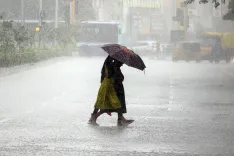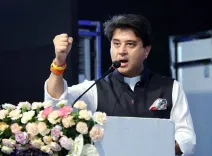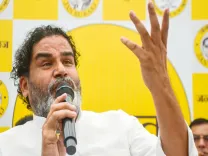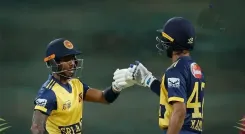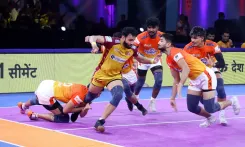Karnataka Government Takes Careful Steps Regarding Hijab in Exams
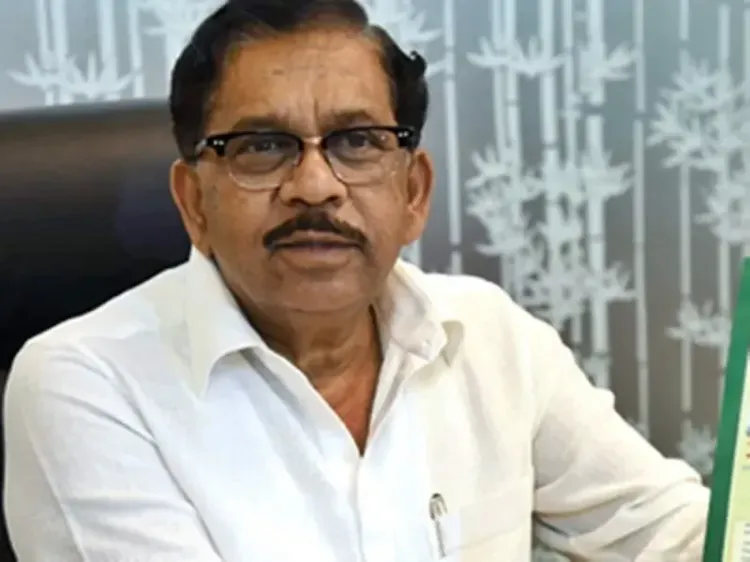
Synopsis
Key Takeaways
- Congress government is evaluating hijab policies for exams.
- The previous ban on hijab created significant unrest.
- Karnataka CM Siddaramaiah supports the right to wear hijab.
- Legal challenges against the ban are ongoing.
- The hijab issue has caused societal divisions.
Bengaluru, Feb 4 (NationPress) The Congress administration in Karnataka is proceeding with caution regarding the issue of permitting students to sit for exams while wearing hijab. The previous BJP government’s handling of the hijab situation garnered international attention and sparked significant unrest within the state.
When queried about whether female students in hijab would be permitted in exam halls, Home Minister G. Parameshwara remarked on Tuesday, “We must engage in comprehensive discussions before reaching a decision on this matter.”
In light of the imminent exams, Parameshwara expressed, “A month is an adequate timeframe for thorough discussion.”
On the question of allowing students in hijab entry into exam venues, Education Minister Madhu Bangarappa mentioned on Monday, “The department will consult the Home Minister, and actions will follow the Home Department's guidance.”
Karnataka CM Siddaramaiah's prior announcement to lift the hijab ban for students in classes 11 and 12 has sparked extensive debate. The opposition BJP has vowed to initiate protests if hijab is permitted in schools.
Siddaramaiah further asserted, “Everyone has the right to wear hijab in educational institutions. I have requested the reversal of the previous government's ban on hijab. Dressing and dietary habits are personal choices (addressing the public). Why impose restrictions? Wear what you wish and eat what you prefer. It is your right.”
“I wear Dhoti and jubba. If you choose to wear pants, what’s the issue? Politicizing such matters for votes is wrong. Our government is dedicated to serving the underprivileged. There’s no room for deviation or compromise. Do not align with those who deceive,” CM Siddaramaiah stated.
The prior BJP government had instituted a ban on hijab for female students in schools and pre-university colleges (class 11 and 12).
This ban was challenged by students in the High Court, which upheld the government's decision. The Supreme Court currently has the matter under review.
The hijab controversy also polarized society, especially among students, along communal lines throughout the state and attracted international media coverage.
The Congress party had pledged to abolish the hijab ban upon attaining power prior to the elections.
A split decision was rendered by a two-judge panel in the Supreme Court in October: one judge, Hemant Gupta, supported the Karnataka High Court's ruling, while the other, Sudhanshu Dhulia, deemed it erroneous. The judges have requested that the Chief Justice refer the issue to a larger bench.
The enforcement of dress codes barring hijab in educational institutions faced criticism both domestically and internationally from officials in countries like the United States and Pakistan. Politicians such as Arif Mohammad Khan, Aaditya Thackeray, and activist Taslima Nasreen defended the ban.
During the peak of the hijab crisis under the previous BJP administration, Muskan, a student from Mandya district, stood up for her beliefs by confronting a group of students chanting pro-Hindu slogans on campus.
The viral video of this confrontation drew widespread attention. Al-Qaeda leader Ayman al-Jawahiri praised Muskan, referring to her as sister, and urged Indian Muslims to raise their voices. This event raised numerous concerns at that time.

